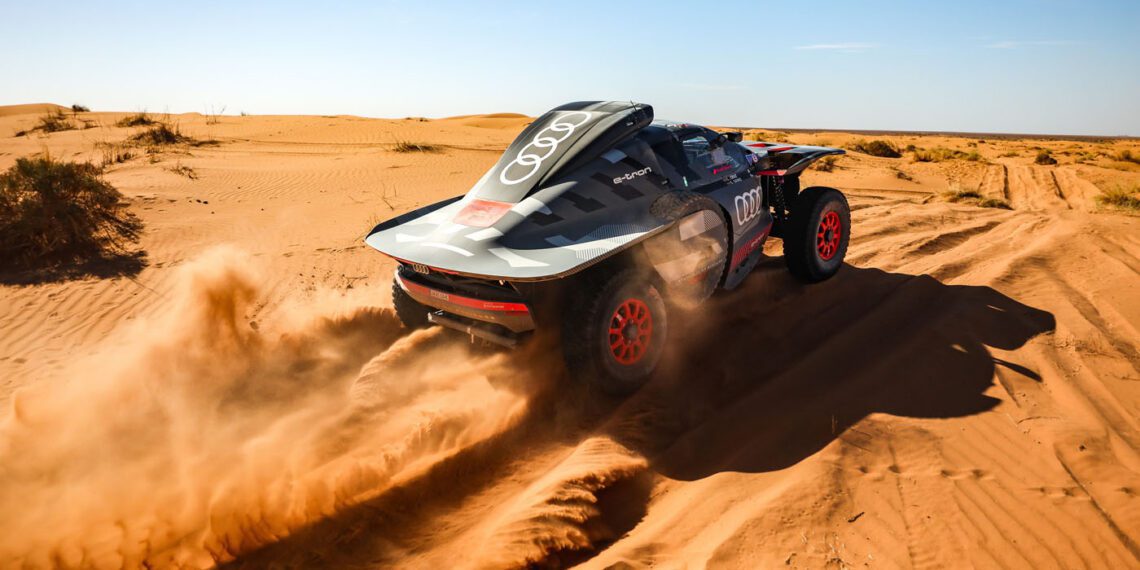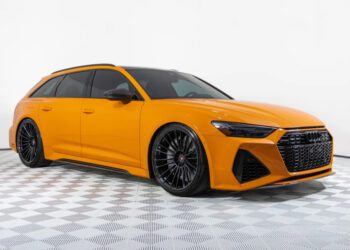Audi continues to prove the exciting prospects of electric performance.
For the past two iterations of the legendary Dakar Rally, Audi has brought to it one of its most innovative high-performance creations: the RS Q e-tron. The all-electric rally car was the first T1U (alternative powertrains) model to be developed for the Dakar Rally, and it first ran the race in 2022.
This coming January, the RS Q e-tron will be participating in its third Dakar Rally, racing a distance of nearly 5,000 miles. Its ultimate goal is to prove that a low-emission electric vehicle can demonstrate the same incredible performance and rally racing ability that a gasoline-powered counterpart can, thus preserving the challenge and excitement of one of the most unique motorsports while transitioning from gasoline to electric power.
In order to optimize the car for the 2024 Dakar Rally, Audi has given the RS Q e-tron various improvements throughout. The cockpit is improved to protect the driver and co-driver better against the harsh desert elements, while other improvements to the battery, and other parts of the car reduce maintenance time and increase its reliability, which is a paramount concern on the rally stage.
Rather than simply being a challenge of great distance, the Dakar Rally features a range of some of the world’s harshest elements and environmental conditions, all in the Empty Quarter desert in Saudi Arabia. With the distance and conditions combined, the rally not only requires the car to be strong but also its team and drivers. Driver Stéphane Peterhansel physically trains and diets in preparation, while his co-driver pays close attention to the strategic concerns of the race.
WIth the new 2024 iteration of the RS Q e-tron on a mission to prove the validity of electric power in the rallying world, fans around the world are excited to see what it will be able to do once the flag drops for the race to begin.
Image Source: Audi

















